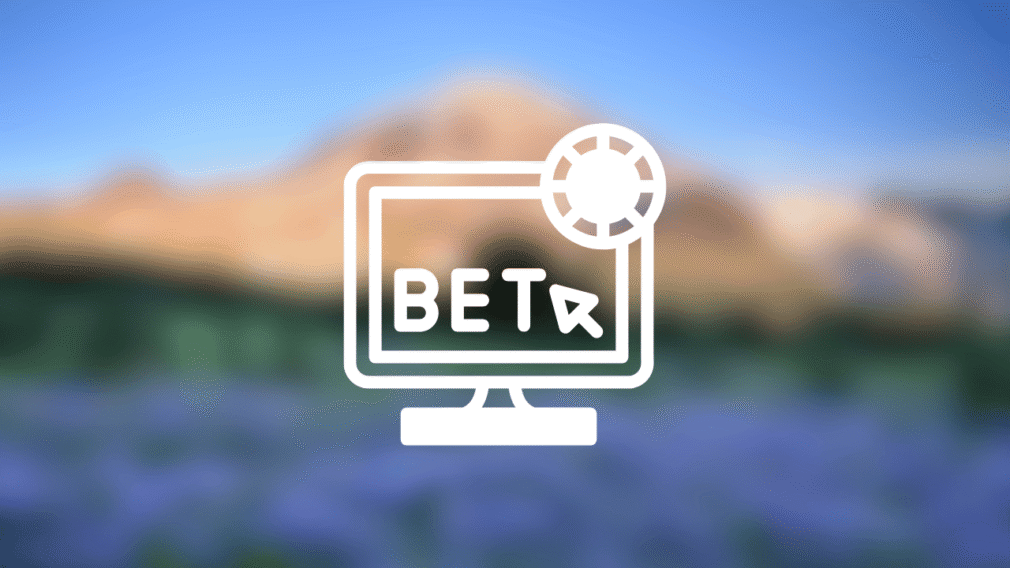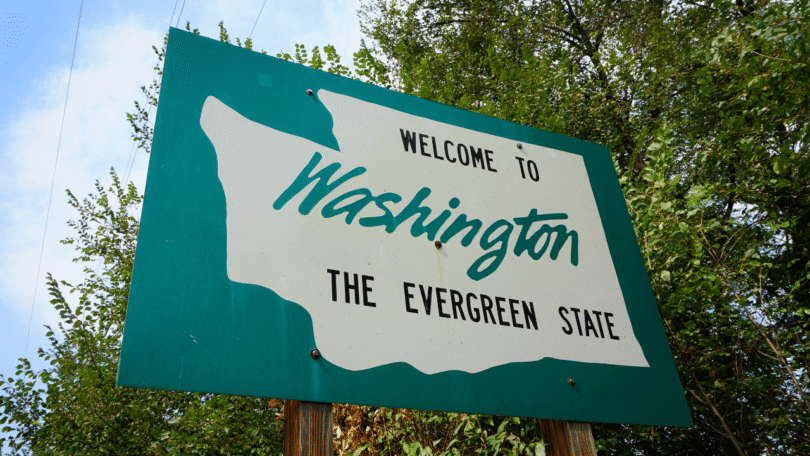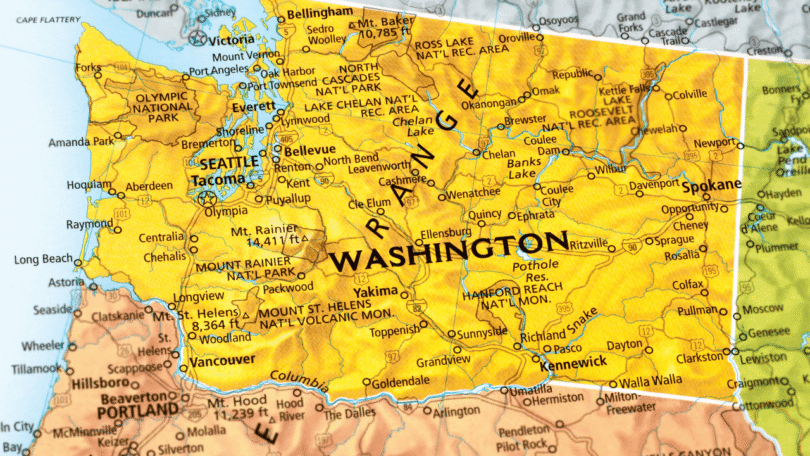Is Sports Betting Legal in Washington? Everything You Need to Know
Sports betting is legal in Washington State, but it’s tightly restricted to tribal casinos, offering both in-person and on-site mobile wagering. Legalized through House Bill 2638 in March 2020, the market launched on September 9, 2021, at Snoqualmie Casino.

Is Sports Betting Legal in Washington?
Is sports betting legal in Washington? Yes, as of July 2025, sports betting is legal but limited to tribal casinos under House Bill 2638, signed by Governor Jay Inslee in March 2020. Bettors must be 21 or older and physically present at a tribal casino to place bets, whether in-person or via mobile apps like BetMGM or Caesars Sportsbook.
The Washington State Gambling Commission oversees operations, ensuring compliance and consumer protection through geofencing technology.
Unlike West Virginia, which offers statewide mobile betting and nine online sportsbooks, Washington’s tribal-only model restricts access, with no statewide mobile betting.
This limitation pushes some to offshore platforms, risking legal and financial issues. The market’s focus on tribal exclusivity supports local communities but limits convenience, requiring bettors to visit casinos like Snoqualmie or Muckleshoot for a safe, regulated experience.
When and How Did Sports Betting Become Legal in Washington?
When was sports betting legalized in Washington? The state legalized it in March 2020 through House Bill 2638, signed by Governor Jay Inslee, following the 2018 Murphy v. NCAA ruling that overturned PASPA, allowing states to regulate sports betting.
The first bet was placed on September 9, 2021, at Snoqualmie Casino by Shawn Kemp, marking the market’s launch. By July 2021,
Inslee approved 15 tribal gaming compacts, with nine tribes authorized by the U.S. Department of Interior. In 2023, Maverick Gaming challenged tribal exclusivity in a lawsuit, claiming it created a discriminatory monopoly, but the case was dismissed by a federal court in February 2023 and upheld by the Ninth Circuit in December 2024.
Compared to Oregon, which legalized betting in 2019 with statewide mobile access via DraftKings, Washington’s tribal-only model, launched later, prioritizes sovereignty over broader access.
Where Can You Place Sports Bets in Washington?
Which tribal casinos offer sports betting, and who are their partners? Over 15 tribal casinos provide retail and on-site mobile betting, including Snoqualmie Casino (IGT), Muckleshoot Casino Resort (Caesars Sportsbook), Emerald Queen Casino (BetMGM), Tulalip Resort Casino (DraftKings), and Suquamish Clearwater Casino Resort (FanDuel).

Mobile betting requires geofencing to ensure bets are placed on casino grounds, including hotels and parking lots on tribal land. In-person registration is mandatory, requiring ID verification and, in some cases, a Crescent Club card. Unlike West Virginia, with statewide mobile access, Washington prohibits off-site mobile betting, limiting convenience.
This restriction, rooted in tribal sovereignty, makes betting less accessible for urban residents far from rural casinos like Northern Quest Resort. Bettors can deposit and withdraw in-person, ensuring secure transactions but requiring physical presence.
|
Casino |
Location |
Tribe |
Sportsbook Partner |
|
Snoqualmie Casino |
Snoqualmie |
Snoqualmie Tribe |
IGT |
|
Muckleshoot Casino Resort |
Auburn |
Muckleshoot Tribe |
Caesars Sportsbook |
|
Emerald Queen Casino |
Tacoma, Fife |
Puyallup Tribe |
BetMGM |
|
Tulalip Resort Casino |
Tulalip |
Tulalip Tribes |
DraftKings |
|
Suquamish Clearwater Casino |
Suquamish |
Suquamish Tribe |
FanDuel |
Recent Developments in Washington Sports Betting
- [October 1, 2025]: Washington Issues Second Cease-and-Desist to Offshore Sportsbook Bovada
- [February 20, 2025]: Washington’s Lottery Achieves Top Responsible Gambling Certification
- [December 27, 2024]: Betfred Continues U.S. Pullback, Exiting Washington and Iowa
What Types of Bets and Sports Are Available in Washington?
What betting options exist in Washington? Tribal sportsbooks offer moneyline, point spreads, totals (over/under), parlays, futures, prop bets, live betting, teasers, and 100-square sports pool boards.
Bettors can wager on professional sports like the Seattle Seahawks (NFL), Seattle Mariners (MLB), Seattle Kraken (NHL), and Seattle Sounders FC (MLS), as well as out-of-state college sports and international events like the Olympics.
Restrictions prohibit betting on in-state college teams (e.g., University of Washington Huskies, Gonzaga Bulldogs), esports (per WSGC rules), minor league sports, politics, entertainment awards, judged sports (except surfing), and LIV Golf Tour.
Popular events like the NFL Draft and Emerald Downs horse races attract significant interest. These restrictions, aimed at protecting amateur athletes, contrast with broader markets in states like Virginia.
How Is Sports Betting Regulated in Washington?
Who regulates sports betting, and what are their duties? The Washington State Gambling Commission (WSGC)oversees sports betting, working with tribal gaming agencies to ensure compliance with HB 2638 and tribal compacts.
Bettors must be 21+, verified via ID and KYC processes, and located on tribal land, enforced by geofencing. Prohibited participants include athletes, coaches, and those with confidential event information.

There’s no state income tax on winnings, but federal taxes (24% on winnings over $600) apply, with a 0.25% federal excise tax on handle.
Illegal betting, like using offshore platforms, risks $1,000 fines, 90 days in jail, or Class C felony charges (up to 5 years, $10,000 fine). The WSGC promotes integrity, audits odds, and ensures secure transactions, fostering a safe betting environment.
What Is the Economic Impact of Sports Betting in Washington?
How do betting revenues benefit tribal communities? Washington’s sports betting market, projected at $94 million annually (WSU, 2021), supports tribal economies by funding education, healthcare, and infrastructure.
Unlike West Virginia, which collected $5.6 million in taxes in 2024, Washington imposes no state tax on tribal betting revenue, allowing tribes to reinvest in communities.
The industry creates 273 direct jobs in hospitality, technology, and customer service, with tribal casinos like Snoqualmie boosting tourism in areas like Tacoma. In 2023, tribal gaming contributed $7.4 billion to the state’s GDP and supported local nonprofits.
Compared to New York ($1.7 billion in betting revenue), Washington’s market is smaller but vital for tribes, though limited data obscures its full impact.
Why Should You Avoid Offshore Betting Sites in Washington?
Why do bettors use offshore platforms? Some turn to sites like Bovada for statewide mobile access, broader markets (e.g., in-state college teams), and tax avoidance. However, these platforms are illegal, risking $1,000 fines, 90 days in jail, or Class C felony charges (up to 5 years, $10,000 fine).
Financial risks include delayed payouts, account closures, and site disappearances. Data security is weak, increasing fraud and identity theft risks, especially with cryptocurrencies. Legal tribal sportsbooks offer audited odds, SSL/TLS encryption, segregated funds, and responsible gambling tools, ensuring safety. Offshore betting lacks consumer protections, and unreported winnings can lead to tax evasion penalties. Report illegal gambling at wsgc.wa.gov.
How Can You Bet Responsibly in Washington?
What tools promote responsible gambling? Tribal casinos offer self-exclusion programs, deposit/spending/time limits, cooling-off periods, and ban credit betting. AI monitors risky behaviors, and staff are trained to intervene.
Resources include the National Problem Gambling Helpline (1-800-GAMBLER), Washington Problem Gambling Helpline (1-800-547-6133), Evergreen Council on Problem Gambling (evergreencpg.org), Gamblers Anonymous, and Birches Health telehealth.
Tribes contributed over $21 million since 2008 to problem gambling programs. Bettors should budget 1–5% of disposable income, take 30–60-minute breaks, avoid chasing losses, and balance betting with activities like visiting Pike Place Market or attending Seahawks games. Legal sportsbooks ensure safer betting compared to unregulated offshore platforms.
What Is the Future of Sports Betting in Washington?
What legislative efforts have aimed to expand betting? Proposals like HB 1630 and SB 5587 (2024) to allow betting at non-tribal cardrooms and racetracks stalled, with no progress in 2025’s 105-day session. Maverick Gaming’s 2023 lawsuit, dismissed in 2025, reinforced tribal exclusivity.
AI could personalize odds, blockchain may secure transactions, and micro-betting could grow if regulations loosen. Restrictions on in-state college teams and esports limit growth, pushing some to offshore platforms.
Unlike Oregon’s statewide mobile betting, Washington’s tribal-only model is unlikely to expand soon due to sovereignty priorities and legislative caution. The WSU study suggests statewide mobile betting could generate $322 million annually, but political will remains low.
Is sports betting legal in Washington?
Yes, legal at tribal casinos since March 2020, with retail and on-site mobile betting.
What is the minimum betting age?
21, though some casinos may allow 18+ if no alcohol is served.
Can I bet on the University of Washington Huskies?
No, in-state college betting is prohibited.
What are the top sportsbooks?
BetMGM, Caesars, DraftKings, and FanDuel at tribal casinos like Snoqualmie and Muckleshoot.
Is statewide online betting available?
No, mobile betting is restricted to casino grounds.
How can I report illegal gambling?
Contact the WSGC at wsgc.wa.gov.
Recommended

